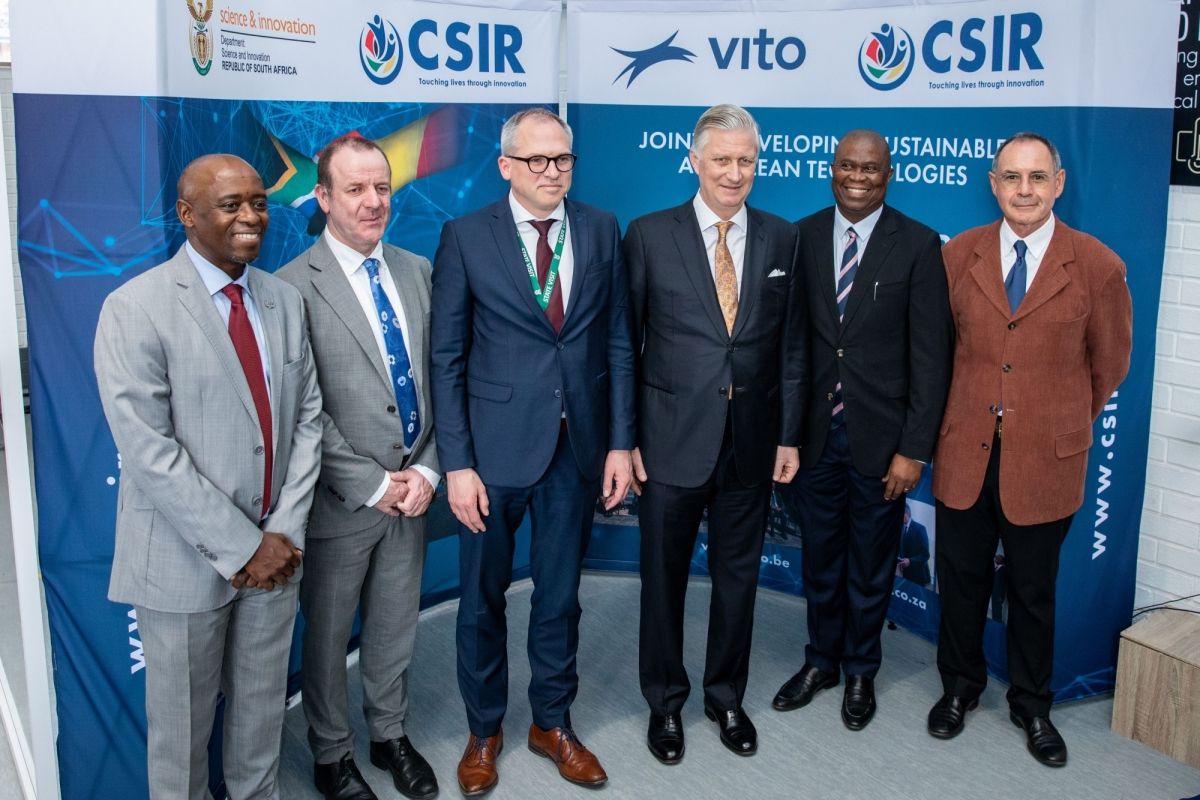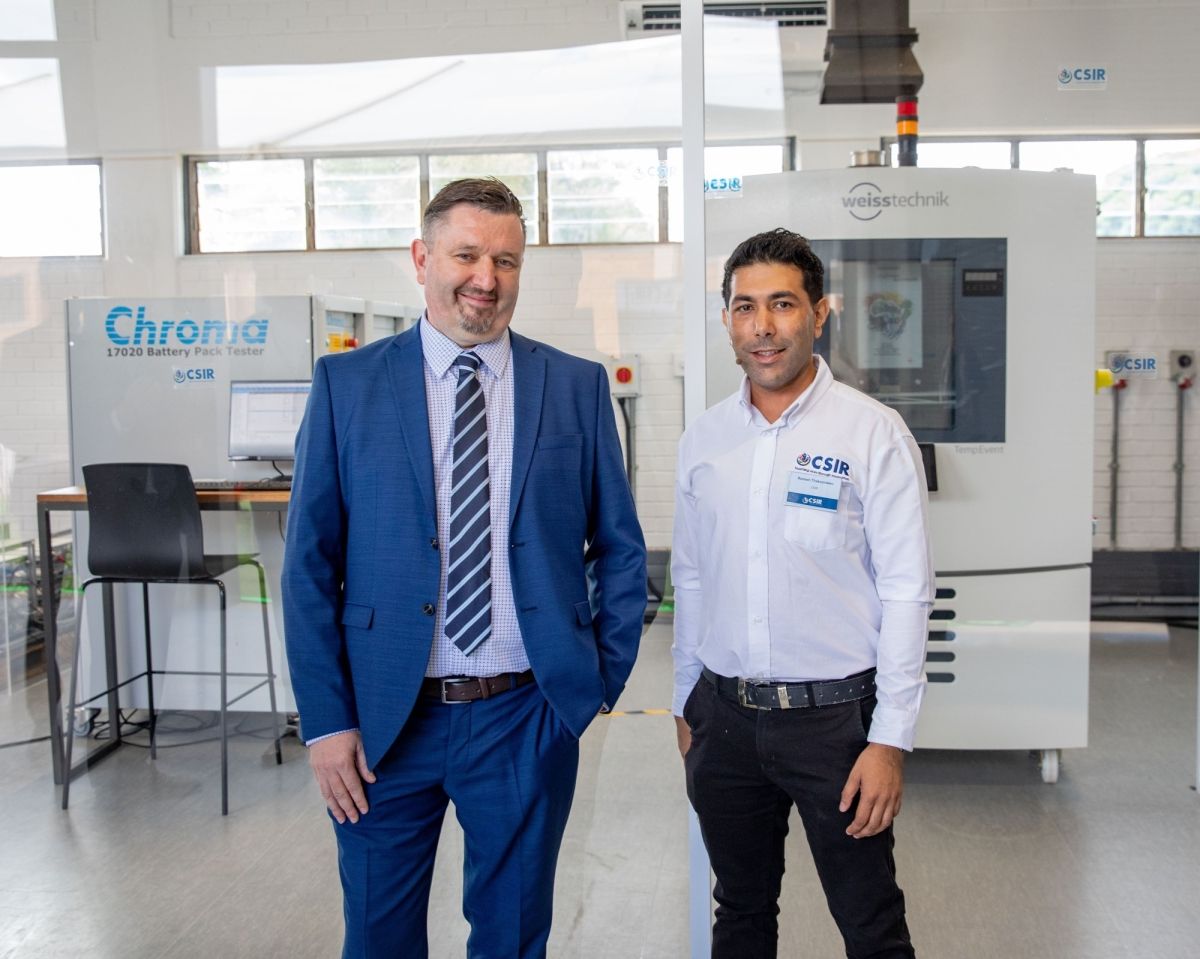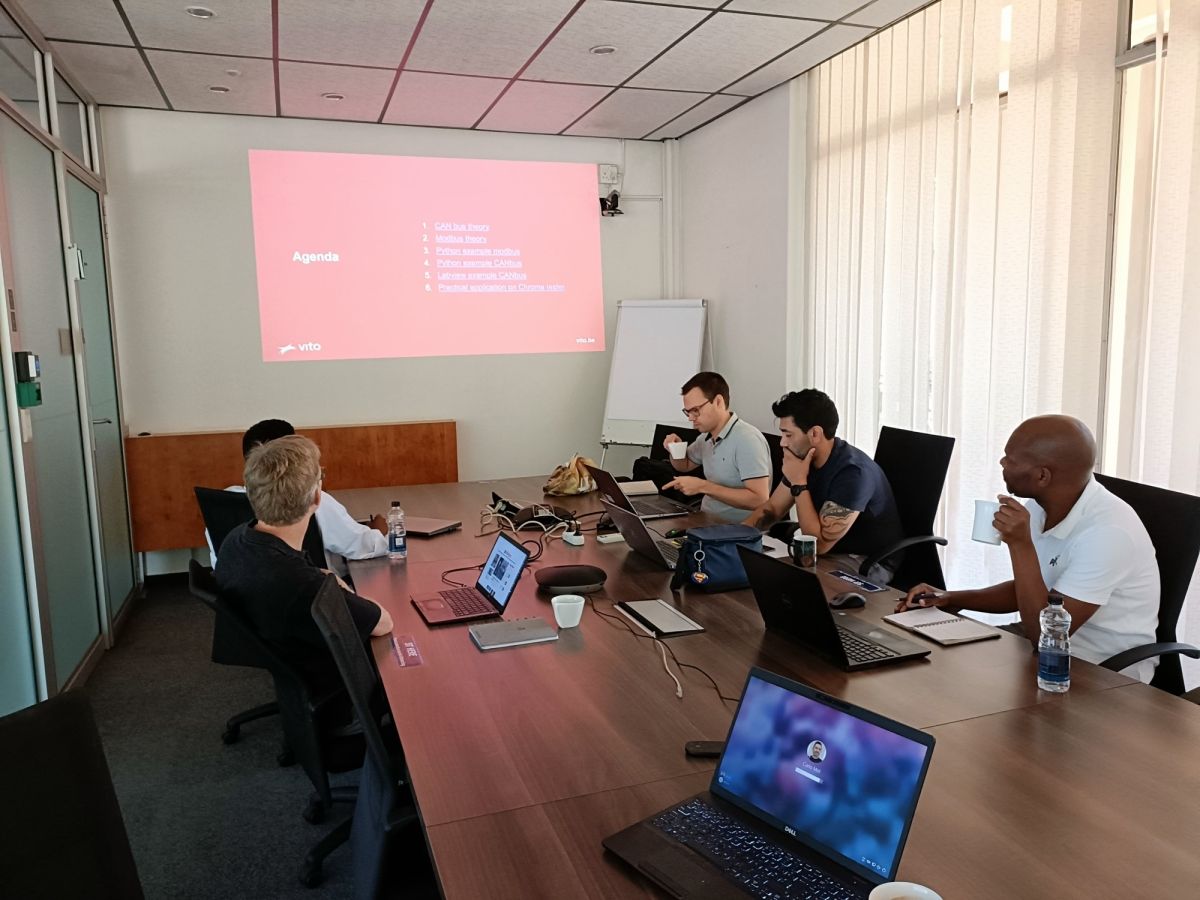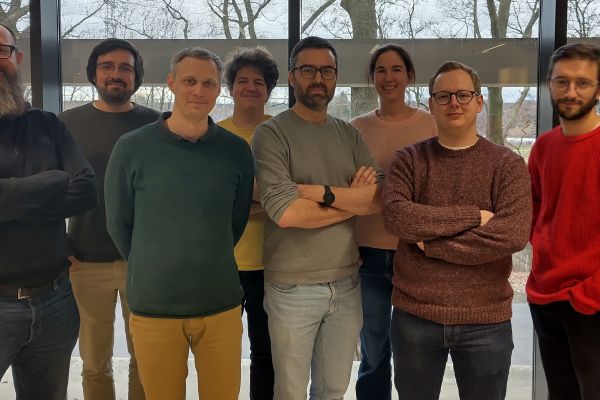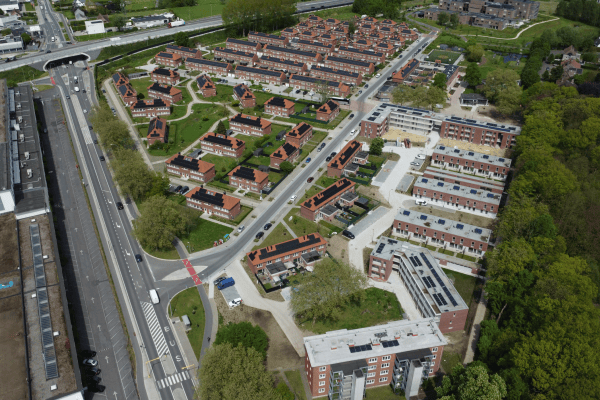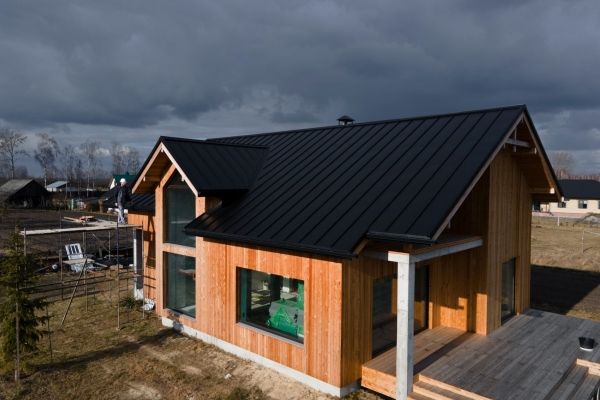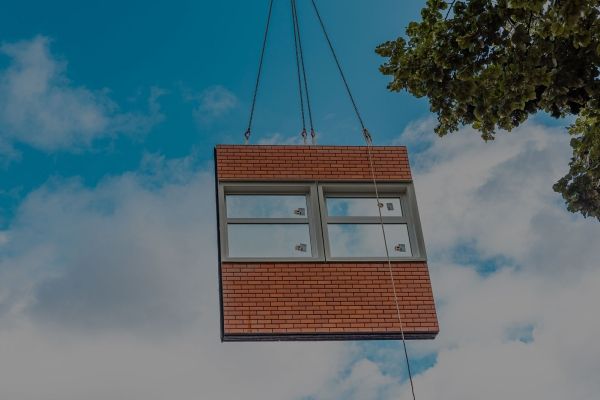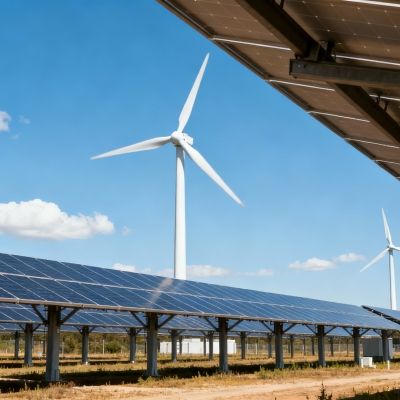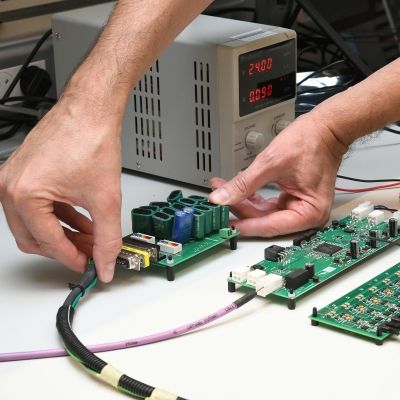New battery test lab to help South Africa with energy storage
South Africa has been having great difficulties with energy provisioning for years. Temporary shut-offs of the power grid in certain areas (load shedding) happen almost daily. This is why companies, as well as individuals, are installing solar panels en masse, combined with batteries for energy storage. The brand-new battery test lab that was implemented in Pretoria by VITO/EnergyVille, in collaboration with CSIR, with support from the Flemish Government, was thus very welcome. CSIR, which is to say the South African counterpart to VITO/EnergyVille, can encourage the roll-out of high-quality energy storage with the new testing infrastructure and expertise built up.
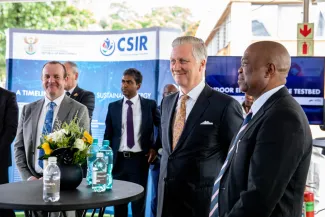
The roll-out of the new battery testing lab with the Council for Scientific and Industrial Research (CSIR) in Pretoria, and the training of their staff, was part of a project that began in December 2020 and ended in November 2023. It came about as part of the Energy Storage Partnership (ESP), a comprehensive programme through which the World Bank is aiming to promote energy storage in developing countries, as they are known. But the project was also part of the Flemish international climate fund, in which South Africa is a partner country. Thanks to support from the Flemish Government, CSIR was able to set up the new battery testing lab to support local businesses from the battery value chain.
Load shedding
Energy storage is sorely needed in South Africa. Not only because more and more use is being made here of variable (intermittent) energy sources, such as sun and wind, as well. Also because the country has been struggling with load shedding, as it is known, for years: insufficient production capacity and a weak power grid mean the power is turned off almost every day somewhere in the country. ‘You can often be without power for hours, even though you do generally get warned as to what time this will happen several days in advance,’ says Carlo Mol from VITO/EnergyVille, who has experienced the phenomenon in-situ himself. ‘This naturally has a great impact on the economy and society. Businesses feel the need to arrange their own alternative sources and sometimes need to temporarily cease their production, with a huge economic impact. But load shedding also causes accidents for people at home or on the street, for example in terms of safety because the lighting and traffic signals stop working.’
Those who can afford to are therefore investing in local energy generation (mainly solar panels) and in batteries to store their own power that they produce. Mol: ‘This has meant that importing and purchasing batteries has exploded in South Africa, both of home batteries for powering solar panels on the roof, for example, and of larger battery modules that businesses and the grid operator install.’ But that means there is an urgent need for expertise in terms of energy storage, and for testing infrastructure for batteries. With its new battery testing lab, this has made CSIR the reference point in that area in South Africa. Stakeholders from the entire battery value chain can go there for questions on the performance and reliability of batteries, among other things.
The new testing facility is comparable in type to the VITO/EnergyVille battery testing lab in Genk, although it is quite a bit smaller. ‘But in essence, CSIR can now carry out pretty much the same tests as we can, for example performance or life span tests linked to a specific battery use,’ continues Mol. ‘And just as at VITO/EnergyVille, tests can be run at the CSIR lab on both individual battery cells and battery modules, as well as battery packs.’ In addition to a battery tester, the facility also has a climate room to check the influence of temperature on battery performance.
CSIR doesn't just wait for its 'clients' to come to them. It also offers its expertise in energy storage on-site. For example, it is collaborating with Cape Town's city council to investigate how load shedding can be approached at a local level there. In any case, South Africa has plans in store for the energy transition to more renewable sources, and just like VITO/EnergyVille in Flanders and Belgium, CSIR can play the role of knowledge partner there too.
More resilient energy system
The implementation and roll-out of the battery testing lab had already got its feet on the ground, which of course came about because of the corona pandemic, followed by the war in Ukraine, which caused a scarcity of materials and long delivery times. The first equipment did not arrive in Pretoria until late 2022, after which the installation could commence. Mol: ‘That made 2023 a very busy year in which, after completing the sample testing for the equipment, we also launched an intensive training programme to train the CSIR staff in all aspects of battery testing. In addition, we carried out the necessary alterations to the building housing the battery testing lab. CSIR is now fully ready to support local businesses in terms of battery testing.’
According to Renesh Thakoordeen, project leader for energy storage at CSIR, the battery testing lab will play a major role in creating a more resilient energy system in South Africa. ‘It's a stepping stone to address the issue of intermittent energy supply. Many businesses and households use solar energy and batteries to secure their energy provision. But the quality of such systems needs to be guaranteed.’ Among other things, the lab will be helping to draw up standards for lithium-ion batteries in South Africa. In addition, South African battery developers or importers will be supported through the lab itself. ‘Now the testing lab is being commercially operated, the South African (and African) battery market can grow because the testing gap, which was first identified in the World Bank's ESP programme, is being bridged.’
Thakoordeen looks back on the collaboration with VITO with great satisfaction. ‘The experience with the VITO team was simply incredible. Essential skills were transferred in various online and personal training sessions. And the support that our CSIR team got from the VITO team exceeded our expectations.’
The battery testing lab has already had a great many visitors. In April 2022, in the presence of Flemish Prime Minister Jan Jambon, a Memorandum of Understanding (MoU) was signed between VITO and CSIR to enhance the collaboration in multiple fields, such as energy, water, air quality and so forth. As part of the state visit, the King of Belgium visited the new facility in March 2023. And in November 2023, the tenth World Bank ESP meeting was organised at CSIR in Pretoria, meaning a large international audience – with many local stakeholders in energy storage and the battery value chain in tow – got the chance to visit the new battery testing lab.
VITO/EnergyVille is aiming to firm up its role in Africa and in the World Bank's ESP initiative further. Thanks to support from the Flemish Government, a project has also now been launched in Morocco for micro-grids, in which energy storage will once again play a major role, alongside energy management systems. The project will run from 2023 to 2025 and involves a collaboration between VITO/EnergyVille and Masen (The Moroccan Agency for Sustainable Energy).



